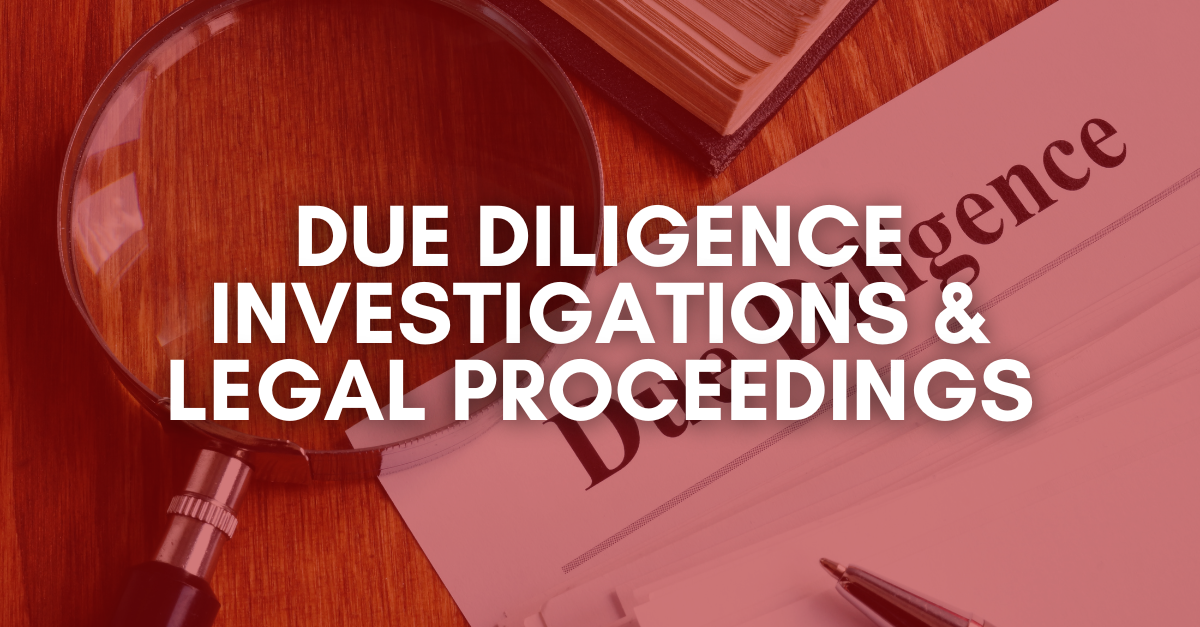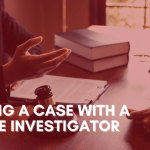In the realm of legal proceedings, due diligence investigations play a pivotal role in ensuring informed decision-making, mitigating risks, and uncovering crucial information. Private investigators are adept in conducting due diligence investigations and bring valuable expertise to support attorneys. In this article, we will explore the significance of due diligence investigations in legal proceedings, highlighting their key benefits and effective strategies.
Understanding due diligence investigations:
Due diligence investigations are comprehensive inquiries. PIs conduct them to assess the background, credibility, and integrity of individuals, businesses, or organizations involved in legal matters. These investigations involve gathering and analyzing pertinent information, verifying claims, and uncovering hidden risks or potential conflicts of interest.
The benefits of due diligence investigations in legal proceedings
Due diligence investigations can provide a wide berth of benefits to a legal case. Below we list some of these:
- Mitigating risks: Due diligence investigations allow legal professionals to identify and assess potential risks associated with parties involved in legal proceedings. By conducting thorough investigations, for instance, PIs can help attorneys make informed decisions. Consequently, minimizing exposure to liability, and safeguarding their clients’ interests.
- Uncovering crucial information: They can also provide access to vital information that may be critical to a legal case. Investigators employ active research, interviews, and document analysis to uncover undisclosed assets, hidden liabilities, previous legal disputes, or other relevant details. These can influence the outcome of legal proceedings.
- Due diligence investigations can give attorneys supporting legal strategies. That is to say, they can empower legal teams to develop robust strategies based on reliable and verified information. By gaining a comprehensive understanding of the parties involved, attorneys can tailor their approach. Furthermore, with said information, attorneys can anticipate challenges, and build persuasive arguments to strengthen their case.
- Likewise, these investigations are instrumental in identifying fraudulent activities. Such as misrepresentation, financial irregularities, or false claims. Investigators utilize their expertise and resources to uncover evidence that can expose fraudulent practices, providing a solid foundation for legal action.
- Last but not least, PIs can help to ensure compliance. In other words, making sure regulatory requirements are met. Investigators can verify adherence to industry standards, licensing, certifications, and other compliance factors. This provides a comprehensive assessment of the parties involved.

So what effective strategies do PIs use in this context?
For the best results, investigators employ a variety of research methods. For example, delving into online searches, public records, and proprietary databases. These searches allow them to gather pertinent information about individuals, businesses, or organizations. Subsequently revealing valuable insights that contribute to a comprehensive investigation.
Document analysis is another crucial facet of any due diligence investigation. PIs meticulously examine relevant documents, contracts, financial statements, and legal records to identify discrepancies. These often uncover hidden risks, and verify the accuracy of information provided by the parties involved.
Besides data and documents, however, people are also an important source of information. Hence why interviews and background checks also make an important part of this process.
Conducting interviews with key individuals and performing background checks are integral components of due diligence investigations. Investigators employ effective questioning techniques to gather information, verify identities, and assess credibility.
Additionally, financial analysis can also provide crucial information to corroborate with other sources. Private investigators are capable of scrutinizing financial statements, transaction records, and other financial documents to detect irregularities, potential fraud, or undisclosed financial obligations.

Overall, due diligence investigations require expertise, attention to detail, and a commitment to ethical practices. By leveraging the skills of experienced private investigators and incorporating effective due diligence strategies into legal proceedings, attorneys can enhance their approach and protect their clients.
Learn more about what we do and why you should hire an experienced private investigator. Simply click on this link to get in contact with one of our team members.










